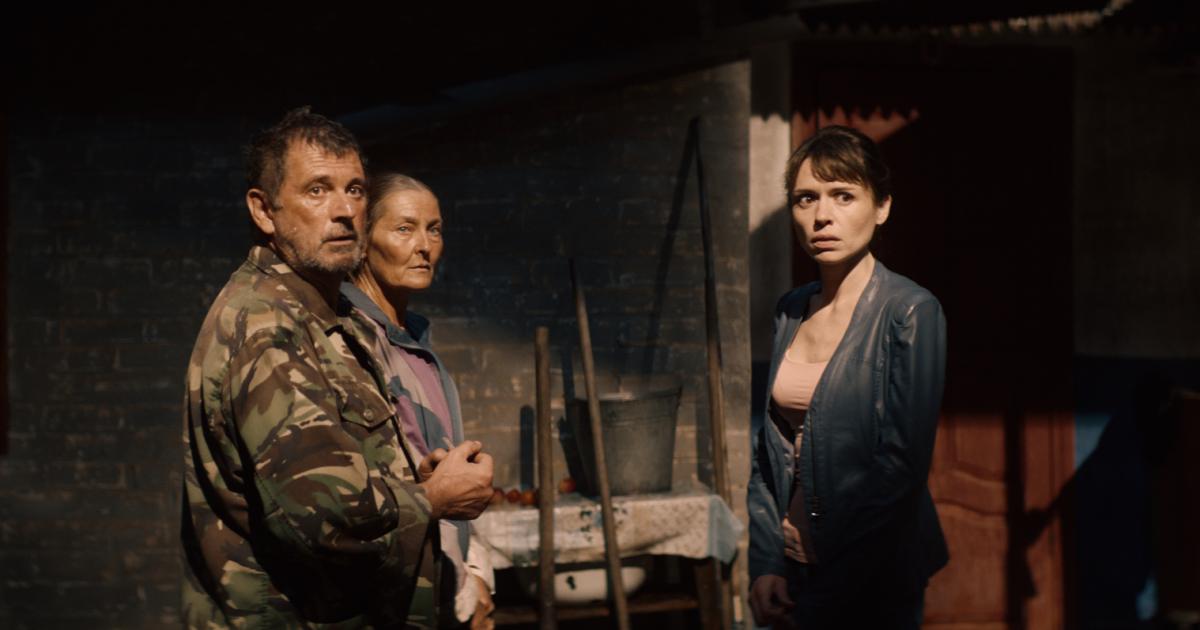


No less an authority than the Kyiv Independent says that for outsiders to truly “understand what’s going on in Ukraine,” the best entre to the situation might be from a couple of recent movies filmed there.
The award-winning “Donbass” which I reviewed earlier, is a dry satire on the fraught nature of Russia’s earlier assaults on Ukraine, often by proxies passed off as the “Russian” speaking minority of the country rising up against Ukrainian nationalism, labeled “Nazis” by Moscow for wanting to be free of Russian domination.
“Bad Roads” covers similar ground with less of a satiric slant, showing us the cost to the Ukrainian psyche of being subject to an invader’s agenda and the ugliness that accompanies foreign occupation — particularly at the hands of Russian troops.
Both of these movies are being released in North America by Film Movement.
In “Bad Roads,” the Oscar-submitted, more pointed and straightforward of the two films, five loosely-connected episodes tell a story of dehumanizing checkpoints, children growing up rudderless and often parentless, not knowing the difference between love and the occupiers’ idea of sex (gang rape), and the collapse of values that infects every corner of society and leaves no good deed unsuspected or unpunished.
A hapless and tipsy school headmaster (Igor Koltovskyy) brings the wrong ID to an army checkpoint, and spends a frantic few minutes trying to explain, to call home and get his wife to vouch for him and to find common ground and common acquaintances with the (apparently Ukrainian) guards. Pleas of “What are you going to do to me?” (in Ukrainian and Russian with English subtitles) and “I’m a FRIEND” to the commander (Andrey Lelyukh) fall on somewhat deaf ears. The commander’s a menacing martinet, short and short tempered.
The drunken headmaster sobers up at gunpoint in the midst of a rising threat level that started with a simple blunder. But he finds something resembling courage when he think he sees one of his female students in a nearby army dugout.
“What are you DOING to us?”
Teen girls talk about boys and sexual experience and crushes on men in uniform as they cadge cigarettes outside a convenience store.
A grandmother (Yuliya Matrosova) later nags one of those girls (Anna Zhurakovskaya) at a bus stop in twilight, with the girl’s angry refusal to listen to anything the old woman says, threatening to “gas myself” if that gunfire in the distance has killed the young soldier she’s taken a fancy to.
“They’ll make mincemeat of us when they retreat,” Granny warns. She knows.
And then there’s the film’s longest sequence, that girl professing her love to a brutish soldier, assaulted and passed along, defending herself with words and opinions as her “I love to torture!” captor brags about his college education, his contempt for this child who professes her love for him, shoving a gun barrel into her mouth and demanding, “Look, are you Jewish by any chance? Gays and Jews are behind all the problems of the world!”
“No gays or Jews ever did anything to me,” she counters. Unlike this brute with a Kalashnikov.
And then there’s the final vignette, hinted at in the previous one. A motorist (Zoya Baranovskaya) accidentally hits a chicken that’s run across the road just as dark settles in. A city woman, she offers to pay for it or its care (it’s only injured) only to have the mistrusting farm owner (Oksana Voronina) change her tune from rude to predatory the moment cash is mentioned.
Her contemptuous son (Sergei Solovyov) is summoned, and now our righteous rural folks start a game of “Let’s see how much we can extort out of this lady who did the right thing?”
War dehumanizes one and all in Natalya Vorohbit’s film, adapted from her play. Generations of life, economic progress, tolerance and values are ground asunder as Russia pulls the rest of the Soviet Empire back down to her alcoholic, brain-drained kleptocratic dictatorship.
Vorohbit pays attention to one episode more than all the others, and that turns out to be the one that is circuitous and the most melodramatic.
Some of “Bad Roads” is hard to watch for its violence and muddying the moral waters between love and rape. All of it has a chilling pallor, seeing as how much of Western civilization is imperiled to the point of one bad election pointing us all towards this sort of hellish future.
Vorozhbit opens up her play just enough to make it cinematic, without losing the power that these disparate stories from a combat zone carry. One watches it with the hope that some day she’ll get to make another, and that Ukrainian cinemas will be open to show it, if they’re still standing.
Rating: unrated, violence, rape, profanity, smoking
Cast: Igor Koltovskyy, Anna Zhurakovskaya, Andrey Lelyukh, Yuliya Matrosova,
Zoya Baranovskaya, Oksana Voronina and Sergei Solovyov
Credits: Scripted and directed by Natalya Vorozhbit, based on her play. A Film Movement release.
Running time: 1:45

